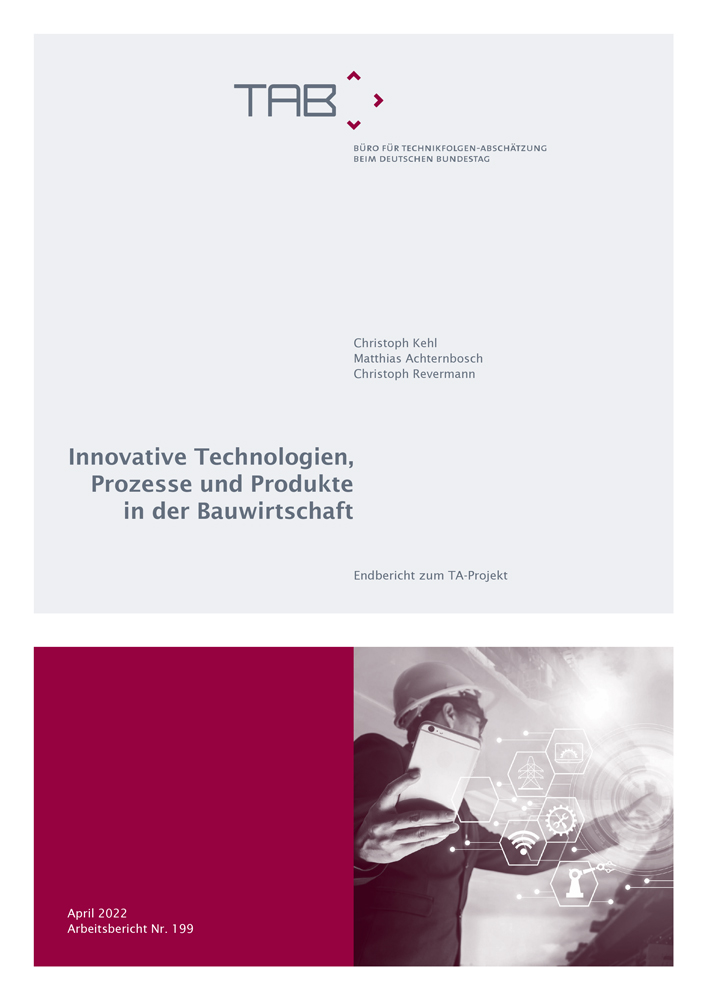Innovations for a more efficient construction industry
The great need for affordable housing and the housing stock that is often perceived as inadequate represent a nationwide challenge in Germany that cannot be met without an efficient construction industry. The digitisation and automation of construction processes are expected to provide significant impetus for more efficient implementation of construction projects. Which (digital) technical innovations are currently being developed, which are being tested or already in use? How can their potential be assessed and what political measures can be taken to overcome the innovation backlog in the industry?
Answers to these questions are provided in the newly published TAB report. In addition to an overview of the sector-framework conditions, it offers an in-depth analysis of relevant trends relating to technology, product and process innovations in the construction industry, particularly with regard to the areas of digitisation, additive manufacturing, serial and modular construction, and automated construction machinery and robotics. The spectrum ranges from digital planning and construction with Building Information Modeling (BIM), the use of highly specialized construcry and supporting robotics in construction, to innovative manufacturition machineng processes for components using 3D printing and high-tech materials, among other things. Particularly ambitious initiatives are described for the increasing networking of machines and assistance systems or for the generation of virtual building models in order to realize all process sequences of a construction project via higher-level management systems (Building 4.0). The important topic of sustainability is addressed in a separate chapter, and overarching options for action are discussed separately.
It is clear that innovation activity and willingness to innovate in the German construction industry must increase significantly if society's expectations in the areas of housing and infrastructure construction are to be met with the limited resources available and with increasing sustainability requirements. However, one of the report's findings is that pushing digital technologies alone will not be enough to ensure that innovations ultimately reach the real world. What is needed is a much broader perspective that also includes environmental aspects, systemic framework conditions and soft operational aspects Digitization requires a willingness on the part of all stakeholders to engage in a fundamental structural change. Innovations will ultimately only be successful if they meet the requirements and needs of SMEs.
TAB-Fokus issue no. 36 (en/ger) as well as the full project report in German are available online.
Results at a glance are presented on the project page.
September 27, 2022
Downloads and further information
-
- TAB-Fokus no. 36
Innovative technologies, processes and products in the construction industry. - TAB-Arbeitsbericht Nr. 199 (only in German)
Innovative Technologien, Prozesse und Produkte in der Bauwirtschaft. Endbericht zum TA-Projekt. - Project page with "Results at a glance"
- TAB-Fokus no. 36

